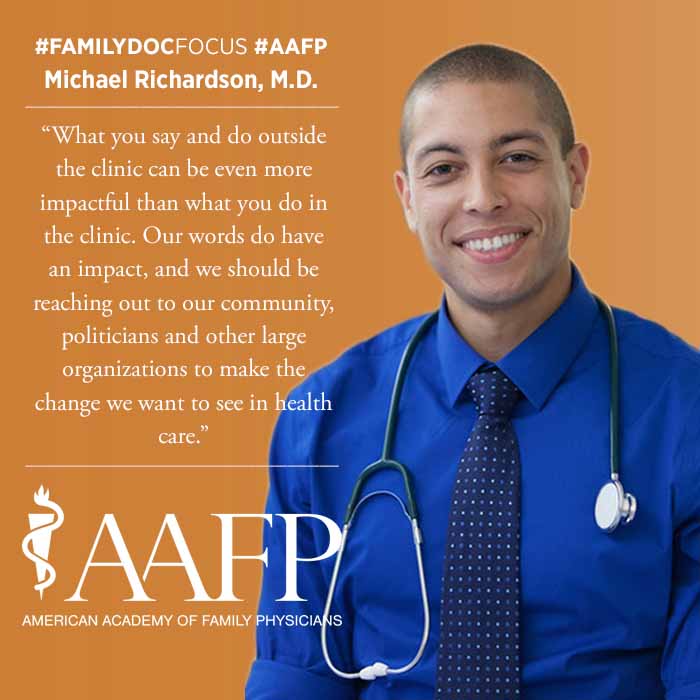Be a Voice for Change in Health Care
July 08, 2019 11:39 am David Mitchell – It didn't take Michael Richardson, M.D., long to find his voice as an advocate for family medicine.
He represented his state chapter as a resident at the AAFP's National Conference of Family Medicine Residents and Medical Students and again as a new physician at the Academy's National Conference of Constituency Leaders. He also has served the Massachusetts AFP as both a resident and active member on the chapter's legislative committee and Board of Directors.
Richardson, the medical director for One Medical in Boston, is returning to the AAFP's student and resident conference this month in Kansas City, Mo. -- this time as a speaker. He and One Medical colleague Natasha Bhuyan, M.D., of Phoenix, will present sessions on July 25 and 26 about working with the media.
"If you look at the debates about health care in the legislature, how many people do you see who are physicians?" Richardson asked.
"They are typically people who aren't involved in health care. The small percentage of physicians involved with politics tends to come from specialty or surgical backgrounds, with a very small representation of family doctors.

"We need more family physicians who are at the table when health care is being discussed. Family physicians are on the front line of health care, and we need to empower them to have their voice heard. Through our workshop, we want to help students and residents craft their personal stories to have their voice heard and be able to make their points clearly when they are at that table."
Richardson has expanded his efforts to speak about - He's a frequent speaker and media source on health topics. As One Medical's medical editor, he edits the group's patient-focused blog and an electronic newsletter.
"What you say and do outside the clinic can be even more impactful than what you do in the clinic," Richardson said. "Our words do have an impact, and we should be reaching out to our community, politicians and other large organizations to make the change we want to see in health care."
Richardson studied clinical psychology at Tufts University, but it was a single public health course that helped him understand that there are factors outside of genetics and personal choice that can impact health. He said he became a doctor to learn more about health and to one day make a change on a larger scale.
"My eyes were opened to the social determinants of health, and it helped me recognize the disparity of health outcomes in the lives of my friends and family," he said. "It motivated me to make an impact on the health and wellness of my community."